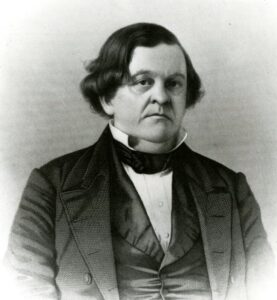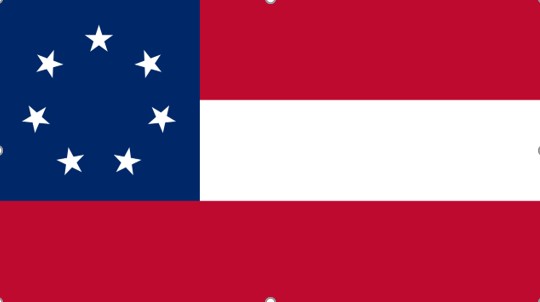WASHINGTON’S BIRTHDAY: Outgoing President Howell Cobb, of the provisional Congress of the Confederate States, inaugurates nonpartisan (constitutionalist) former Senator Jefferson F. Davis, of the Confederate State of Mississippi, as provisional President of the Confederate States. Not once did Davis mention slavery in his inaugural address. Instead the new president spoke about the ideals of the unanimous Declaration (of Independence) and the Preambles to the Constitutions for the united and Confederate States:
Our present condition, achieved in a manner unprecedented in the history of nations, illustrates the American idea that governments rest upon the consent of the governed, and that it is the right of the people to alter or abolish governments whenever they become destructive of the ends for which they were established.
The declared purpose of the compact of [voluntary] Union from which we have withdrawn was “to establish justice, insure domestic tranquility, provide for the common defense, promote the general welfare, and secure the blessing of liberty to ourselves and our posterity;” and when, in the judgment of the sovereign States now composing this Confederacy, it had been perverted from the purposes for which it was ordained, and had ceased to answer the ends for which it was established, a peaceful appeal to the ballot-box declared that so far as they were concerned, the government created by that compact should cease to exist.
[added 3/12/2022]
Subsequent Events:
Authority:
Provisional Confederate Constitution, Article II, Section 1 [Clause 6]
avalon.law.yale.edu/19th_century/csa_csapro.asp
References:
Steven Yates, “When is Political Divorce Justified?,” Secession, State and Liberty, David Gordon, ed., (New Brunswick, New Jersey and London: Transaction, 1988), 62.
Jefferson Davis’ First Inaugural Address
jeffersondavis.rice.edu/resources.cfm?doc_id=1508


